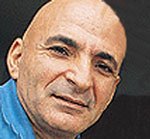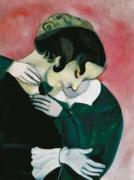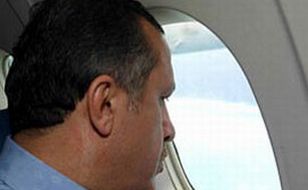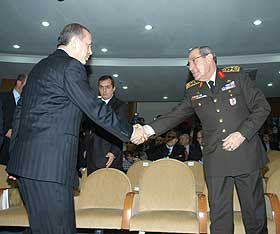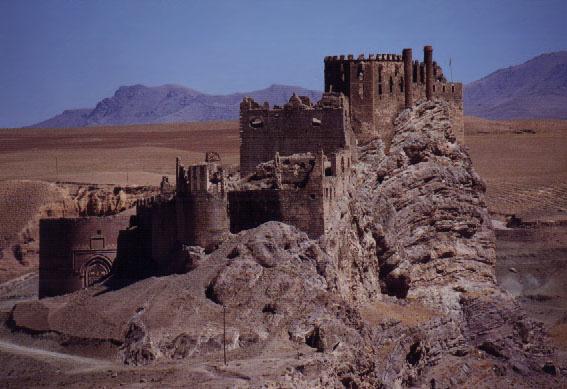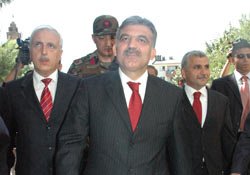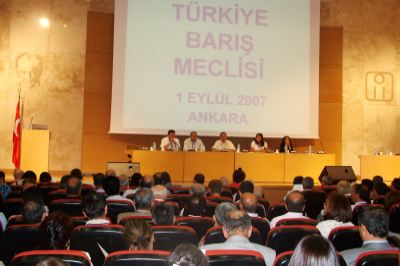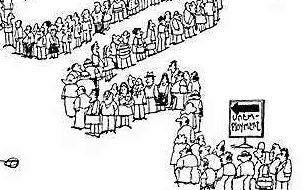In recent months the headlines have been occupied by the Kurdish question, particularly by the planned destruction of the PKK and showing the Northern Iraqi Kurdish leadership its place. [...] Meanwhile, contacts and US visits have shown that the USA will not have the Northern Iraqi Kurds touched. [....]
At this time the Republican People's Party (CHP) has moved away from its war hawk stance and become more dove-like; it has reached out with an olive branch of protection through education, trade and cultural rapprochement with Northern Iraqi Kurds, a surprising step for many.
Notice how it is always the Northern Iraqi Kurdish leadership which is focused on...the war hawks say let's beat them up, the doves worry about pulling them onto their side. Why is Northern Iraq so much in the forefront? Because Northern Iraq is seen as a threat [...] against Turkey...Barzani-Talabani are seen as sedition and treachery which will lead the Kurds in Turkey astray.
"A despotic father..."
It would not be wrong to liken the Turkish state to a despotic father, who, with his tragic comical jealousy and insecurity, gives his daughter a hard time.
The girl at home, who does not go out, who is given a hard time, who is not sent to school, who is not looked after properly (the Kurds in Turkey), is told by some (the PKK) to rebel, and by others (the Northern Iraqi Kurdish leadership) to secretively leave her father's home and run away to them.
Because the despotic father has not been at peace with is daughter for years, because he has not shown her love and tenderness, is worried that this might happen. Sometimes he beats and frightens her, sometimes he beats and frightens those who threaten to lead her astray.
What would one expect? That the father talked with his daughter, understood her needs and met them, loved her, gained her trust....if he did this, he would trust his daughter, would not be bothered about anyone trying to tempt her. No one would be able to divide father and daughter...
It is this simple and humane solution which those leading Turkey have not been able to apply as far as the Kurds in Turkey are concerned. When they could love and embrace their own Kurds, they have believed that they would be led astray and have continued a never-ending war.
"...and the daughter"
And what about the daughter, the Kurds? Have they been able to trust their father? They have not. Because the regions where they live have always been the third-class compartments of the Turkey train.
Poverty, deprivation, unemployment, contempt, not being able to speak their own language, live thier own culture...when such treatment is elevated to official politics, which girl can trust her despotic father?
After some time she also became angry, [...] and pricked up her ears to those showing different ways...believing either out of fear or out of hope...Ten years passed like that, but then she realised that this was not the way either...
Really, the Kurds are tired, hopeless...Their belief in the PKK has declined, they are looking for new openings...But mainly they want to live in their own regions without fear, they are waiting for the Turkish-Kurdish opposition which some are trying to spread throughout the country, the sly civil war incitement to end.
"Turkey must tidy up its own house"
It is clear what needs to be done actually; Turkey needs to make peace with its own Kurds, at least from now on. It must love, protect and trust its own Kurds. First it must tidy up its own house [...]. The Kurds are not only the roughly 10 million population in the 21 provinces of the East and Southeast.
Around 20 percent of Istanbul's population was born in the East or Southeast. The Marmara region, Izmir, the Mediterranean and Inner Anatolia have similar demographies. Turks and Kurds have intermarried for hundreds of years, have done military service together, have lived together...Turks cannot be without Kurds, and Kurds cannot be without Turks...
"Poverty is shameful"
The poverty of the Kurds has been recorded with the "green cards"[, the cards which entitle proven poor families to free health care]. The state, which is entrusted with the constitutional duty of allocating its income fairly, should be ashamed of recording poverty with green cards. It is shameful that in 2007, 47 percent of Van's population were poor enough to have green cards.
Despite dozens of GAP projects [Southeastern Anatolia projects], unemployment is at 18 percent in Diyarbakir and Sanliurfa, shameful numbers. The state must be ashamed of the desperate Kurdish families who sell their children either to the PKK in the mountains or the mafias in Istanbul. Don't be angry at the Kurdish father who sells his children to the mountains or the mafia, but at the leaders who have forced him into this situation.
"The Kurdish question is an economic issue"
Those who say that the Kurdish question is not economic but a political and cultural issue are woefully wrong. Of course the Kurdish issue has political and cultural dimensions, but it is just as much an economic issue. If it is mostly Kurds who live in the areas who have not been able to free themselves of their least-developed status in Turkey at almost every point in history, if despite it being a constitutional duty, the state does not decrease inequality, then is the Kurdish question not an economic issue, too?
Although they have done their military service, have paid taxes, they cannot benefit much or at all from the blessings of this age, from education, health service, the right to work and shelter. If this has gone on for dozens of years, would one not feel treated like a stepchild? And if someone then came and said, "We are Kurdish, that is why the state is doing this", would one not believe them?
At the base there is of course poverty, and as long as there is no provision made to tackle poverty at its roots, the Kurdish question will continue. Of course it is our duty to recognise Kurdish cultural rights, to develop democracy for everyone, but we also have to provide welfare, work and food which does not leave them behind Turkey's average. Only then will the girl believe that she is really the father's dauther, will trust him, and feel safe. Only then will Turkey's Kurds, who have migrated all over the country, feel safe, feel more like citizens.
"A class issue"
Most Kurds, like most Turks, are labourers, of the waged class. Most of Turkey's labour force, around 70 percent, or 13 million people, work as employees. The official number of unemployed is 2.5 million, but really double that number. This means that there are a total of 18 million workers and unemployed labourers, which represents around 80 percent of the economically active population.
It is impossible to separate the Kurdish identity struggles and their struggles for work, just as it is impossible to separate the struggle of workers in Turkey for democracy and independence from their struggle for work. They are not different from each other, they are all a struggle of workers for democracy and daily bread. [...]
It is clear that this is a class problem. A common class programme, purified of any nationalist dregs, which would also include cultural rights for Kurds, would bring Turkey to a more enlightened, more democratic future. This looks more possible today than in the past. (MS(NZ/AG)




